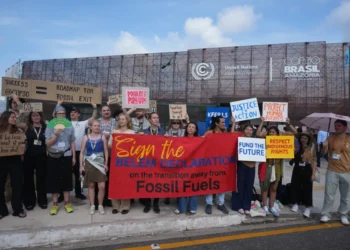The environment is the foundation of life on Earth, providing us with the air we breathe, the water we drink, and the resources we need to survive. However, human activities have taken a toll on our planet, leading to pollution, deforestation, habitat destruction, and climate change. In this article, we explore the importance of environmental conservation and the actions we can take to protect and preserve our planet for future generations.
- Biodiversity Preservation: Biodiversity is essential for the health and stability of ecosystems, yet species are disappearing at an alarming rate due to habitat loss, pollution, and climate change. Protecting biodiversity is crucial for maintaining ecosystem services such as pollination, soil fertility, and water purification. Conservation efforts, including the establishment of protected areas, habitat restoration, and sustainable land management practices, are essential for preserving the rich diversity of life on Earth.
- Climate Change Mitigation: Climate change is one of the most pressing environmental challenges of our time, with far-reaching impacts on weather patterns, sea levels, and ecosystems. Greenhouse gas emissions from human activities, such as burning fossil fuels and deforestation, are driving global warming and exacerbating climate-related disasters. Mitigating climate change requires transitioning to renewable energy sources, reducing carbon emissions, and enhancing carbon sequestration through reforestation and ecosystem restoration initiatives.
- Pollution Reduction: Pollution poses a significant threat to human health and the environment, contaminating air, water, and soil. Industrial activities, agricultural runoff, and waste disposal practices contribute to air and water pollution, leading to respiratory diseases, waterborne illnesses, and ecosystem degradation. To combat pollution, we must adopt cleaner production methods, improve waste management systems, and implement pollution control measures to safeguard human health and environmental quality.
- Sustainable Resource Management: Humanity’s reliance on finite resources such as water, energy, and minerals is unsustainable, leading to resource depletion and environmental degradation. Adopting sustainable resource management practices, such as water conservation, energy efficiency, and circular economy principles, is essential for meeting our needs without compromising the ability of future generations to meet theirs. By embracing sustainability, we can minimize waste, conserve resources, and protect the integrity of ecosystems.
Preserving our planet requires collective action and commitment from individuals, communities, governments, and businesses worldwide. By prioritizing environmental conservation, we can safeguard biodiversity, mitigate climate change, reduce pollution, and promote sustainable development. Together, we have the power to protect and preserve our precious planet for the benefit of all living beings now and in the future.

 English
English



























































